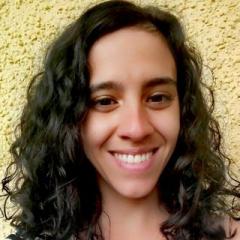Listening & reading materials
Practice vocabulary in context with real materials.
Vocabulary (12) Share Copied!
Exercises Share Copied!
These exercises can be done together during conversation lessons or as homework.
Exercise 1: Conversation exercise
Instruction:
- Décrivez les activités dans les images. (Describe the activities in the pictures.)
- Parlez de votre art et musique préférés. (Talk about your favourite art and music.)
Teaching guidelines +/- 10 minutes
Example phrases:
|
Il y a deux garçons qui regardent la télévision. There are two boys watching the television. |
|
Vous pouvez voir un artiste travailler sur un projet artistique. You can see an artist working on an art project. |
|
J'aime l'exposition de Picasso. I like the exposition of Picasso. |
|
À quelle heure commence le concert ? What time does the concert start? |
|
Je vais à une exposition sur l'art moderne. I go to an exposition on modern art. |
|
J'aime le rock, mais j'apprécie aussi un concert de jazz. I like rock, but also I enjoy a Jazz concert. |
| ... |
Exercise 2: Dialogue Cards
Instruction: Select a situation and practice the conversation with your teacher or fellow students.
Exercise 3: Translate and use in a sentence
Instruction: Pick a word, translated and use the word in a sentence or dialogue.
1
L'art
Art
2
Le piano
The piano
3
Une œuvre
A work
4
Arriver
To arrive
5
Chanter une chanson
Sing a song
Exercise 4: Reorder sentences
Instruction: Make correct sentences and translate.
Exercise 5: Match a word
Instruction: Match the translations
Exercise 6: Cluster the words
Instruction: Regroupez les mots selon qu'ils concernent les événements musicaux ou les visites culturelles au musée.
Événements musicaux
Visites culturelles au musée
Exercise 7: Le discours indirect : Il dit que...
Instruction: Fill in the correct word.
Grammar: Indirect speech: Il dit que...
Show translation Show answersdit que, dit de, dit qu', dit d'
Grammar Share Copied!
It's not the most exciting thing, we admit, but it’s absolutely essential (and we promise it'll pay off)!
Verb conjugation tables for this lesson Share Copied!
Visiter to visit Share Copied!
passe_compose
| French | English |
|---|---|
| (je/j') j'ai visité | I visited |
| tu as visité | You visited |
| il/elle/on a visité | He/she/one visited |
| nous avons visité | we visited |
| vous avez visité | You visited |
| ils/elles ont visité | They visited |
Don't see progress when learning on your own? Study this material with a certified teacher!
Do you want to practice French today? That is possible! Just contact one of our teachers today.























